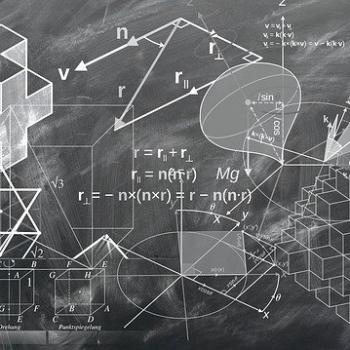 For a large and growing swath of Americans, “meritocracy” is now a dirty word. To be sure, sociologists have spent decades studying the ways in which much economic and social success is traceable back to a dense web of advantages, inequalities, and unearned privileges. But until recently, the deconstruction of the ideal of the “self-made man” had not previously attracted much mainstream support. Everyone, after all, likes to believe that they’re the exception to the rule.
For a large and growing swath of Americans, “meritocracy” is now a dirty word. To be sure, sociologists have spent decades studying the ways in which much economic and social success is traceable back to a dense web of advantages, inequalities, and unearned privileges. But until recently, the deconstruction of the ideal of the “self-made man” had not previously attracted much mainstream support. Everyone, after all, likes to believe that they’re the exception to the rule.
Over the last few years, popularized versions of this critique have been put to page in a number of stirring polemics. Daniel Markovits’s The Meritocracy Trap dissects the massive personal costs (to the prosperous) of the massive sums they are piling up. Malcolm Harris’s Kids These Days delivered a scathing indictment of the hopeless financial precarity faced by the millennial generation. The late Mark Fisher’s Capitalist Realism painted a grim picture of the seeming indestructibility of neoliberal-meritocratic claims. And so on and on it goes.
But for sheer audacity, none of these volumes quite matches Freddie de Boer’s new book The Cult of Smart: How Our Broken Education System Perpetuates Social Injustice. Though framed and marketed as a study in education policy, The Cult of Smart wants to be much more than that; de Boer wants his readers to rethink the foundations of not merely meritocracy, but the notion of personal responsibility as such.
De Boer is perhaps best known for his astute and acerbic writings on intra-leftist social dynamics, particularly online—and I’d go so far as to call him one of the most talented essayists working today. By profession, de Boer is (or was, until recently) an administrator at the City University of New York (CUNY) with extensive experience in teaching and a particular interest in the process of academic assessment. It is that background that de Boer calls upon to advance a seemingly shocking claim: almost all teaching is useless, in terms of producing meaningful educational outcomes. Education reform, no matter how sophisticated, is in principle doomed to fail.
For de Boer, the science compels only one conclusion. Genetic differences between individuals (not—contra Charles Murray—between racial groups, as de Boer stresses over and over again) are massively influential and produce utterly intractable achievement gaps. To put it crudely, the smart kids will be smart no matter what, and the dumb kids will always stay dumb. The answer to this problem, de Boer contends, is “full socialism” that prioritizes equality of outcome over all else. (In a bizarre concluding chapter of the book, de Boer does little more than extol the moral goodness of Sen. Bernie Sanders’s presidential platform.)
Debates over the political ramifications of natural differences between individuals aren’t new (they go back at least as far as Plato). But as may be obvious, much of The Cult of Smart is particularly dependent on the work of the tremendously influential liberal philosopher John Rawls. Rawls, like de Boer, asks a seemingly straightforward question: do those on the top of the economic heap “deserve” their unequal wealth?
For Rawls, the answer is clearly no. Just as some individuals are naturally taller or stronger than others, so too are some individuals smarter or cleverer than others. On this view, it is no good to stress the importance of “work ethic,” because an individual’s tendency to be disciplined or studious is itself inheritable. The net effect of this reasoning is to erode any basis for attributing an individual’s economic success to their own intrinsic “deservingness;” redistribution of wealth, for Rawls, is morally justified because the individual inherent advantages that give rise to inequality are ultimately grounded in nature’s random, unjustified distribution of biological gifts. De Boer follows Rawls completely, grounding Rawls’s paradigm in individual students’ (alleged) inherent inability to succeed equally in the new knowledge economy.
But de Boer fails altogether to reckon with a fundamental tension at the heart of Rawlsian political thought, one ably probed by Ben Nelson in his recent book The Theology of Liberalism: Political Philosophy and the Justice of God.
Despite his disavowal of traditional views of moral desert in the context of economic inequality, Rawls did affirm the need for a criminal justice system that punishes those who offend against the social order. And so too does de Boer. But note the asymmetry here: an individual may claim no moral credit for his successes (those are all traceable back to “moral luck,” or the natural inequalities of genetics, history, family, and so on), but he is morally responsible for his sins (he has the free will to commit crimes, and it is appropriate for him to be punished for them). For de Boer, no one who succeeds in the meritocracy has truly earned their high place—yet in his world, those who stand in the way of progress are nevertheless guilty of perpetuating large-scale injustice.
As Nelson insightfully notes, this is the essential structure of Calvinist theology: man apart from God can claim no moral credit for his “good works,” but man can perform sinful actions for which he is judged, held responsible, and damned. And, true to form, the young Rawls was indeed a devout Calvinist. (In a truly astounding irony, de Boer himself recently penned an essay entitled “Against Political Calvinism,” in which he decried the tendency of some on the left to treat social injustices as foreordained. And yet “political Calvinism” is the gospel he preaches from virtually every page of his book.)
Perhaps Rawls, de Boer, and Calvin were all correct about the structure of moral responsibility—but if so, this asymmetry can only be justified as a matter of theological conviction, not scientific necessity. Pitiless logic seems to push Rawls and de Boer toward a hard determinism in which no one can be held responsible for any of their choices, whether good or bad. Perhaps de Boer—as a thoroughgoing historical materialist—would not find this position objectionable, but embracing it would require him to drastically revise his stated views on criminal justice.
And in the end, is anyone—even de Boer—really committed to such a grimly absolutist determinism? It seems to me that the very act of writing and publishing The Cult of Smart is a manifestation of what Michael Polanyi called “pseudosubstitution,” or performative self-contradiction. If human beings are so shaped by their genetics that they cannot claim any responsibility for their professional successes, and are simply executing a deterministic biological script, why should de Boer’s book be capable of persuading anyone at all to pursue its vision? Isn’t the current “meritocratic” state of things the natural outcome that biological-behavioral forces have selected? Perhaps de Boer is biologically fated to experience sorrow over present inequality, and to write a book outlining his alternative vision, but perhaps I (and the majority of other people) are not so “built” to feel guilt over the status quo. In short, to assume people are capable of changing their minds (as de Boer does) is to assume a measure of free will, and thus moral responsibility.
Beyond this, though, it seems to me that there is another rather fundamental flaw in de Boer’s argument, bound up with what de Boer frames as the essentially contradictory purposes of contemporary education: the need to (1) advance overall equality, through education’s role as the “great leveler,” and (2) sort high performers from lower performers in order to meet the demands of the market. These two purposes, for de Boer, are totally incompatible—thereby justifying drastic reforms.
But it strikes me that this is a false dilemma, rooted in a very narrow vision of what education is actually for. The idea of education as possessing a distinct intrinsic value, over and beyond its economic returns, is mentioned briefly once and never again.
Of course, de Boer is not alone in his temptation toward reductionism: in The Case Against Education, libertarian academic Bryan Caplan challenges proponents of “the nonquantifiable value of education” to assign a dollar amount to this “nonquantifiable” notion, in the context of evaluating whether the current pricing model for higher education makes any sense. Caplan has a point, no doubt—but the merits of his larger argument don’t change the fact that such an assignment is frankly impossible. At its best, education works a sort of reverse Dunning-Kruger effect, helping the student realize, in hindsight, what they didn’t know they didn’t know.
Here’s what I mean: without any education at all, I can go to the Freer-Sackler Gallery in Washington, D.C., look at a piece of Chinese jade sculpture bearing strong Confucian influences, and think “that’s a pretty design.” At most, I might ask how did they make that? Only with education do I become capable of asking deeper and deeper questions about the sculpture. What is this sculpture saying about Tian (Heaven) and the world of immanent experience? Is this piece subverting existing social hierarchies, or affirming them? Without guidance, I simply don’t know these questions exist to be contemplated in the first place; my thought-world is essentially impoverished in ways I cannot know ex ante.
This is the fundamental problem with trying to assign a number to the “nonquantifiable value of education” or otherwise filter the concept through a Marxist/materialist lens. Because a good education impacts everything all at once, radically altering one’s relationship to the world and opening up the range of joys one is capable of enjoying, it is in a sense quite priceless. How can anyone possibly step outside their ego to evaluate what their life would be like with or without their education?
That being said, formal education is only part of the picture, as Zena Hitz argues in her recent book Lost in Thought: The Hidden Pleasures of an Intellectual Life. For Hitz, an irreducible feature of the “good life” is the cultivation of a rich inner life, within which one contemplates the deepest questions of human purpose and existence: Where did we all come from? Where are we going? What is a life well lived? To illustrate her point, Hitz presents a provocative scenario: if you were suddenly thrown into prison, like St. Paul (or, if you prefer, Antonio Gramsci), would you have the contemplative resources to make good use of that time without falling into despair and anomie?
Hitz’s book is primarily concerned with justifying contemplative practices to those tempted to prioritize social activism and write off reflection as a decadent waste of time. But I think her argument is powerfully apposite in the context of de Boer’s rather reductionistic approach to education. Hitz (a Catholic) is drawing on the fundamentally Christian insight that human beings are more than meat in motion, but are also souls distinct from their economic circumstances—and souls equal in dignity before God irrespective of their material status.
Rightly understood education, it seems to me, is an invitation of all human souls to the kind of “contemplative flourishing” that Hitz identifies. The possibility of such flourishing is available to everyone, transcending IQ and social class alike: Hitz marshals numerous examples of everyday working-class citizens pursuing intellectual work in their fleeting moments of spare time, and one also recalls Christopher Lasch’s elegy, in The Revolt of the Elites, for the reading groups and lecture societies that existed among working people in a prior era.
To put it simply: it doesn’t matter whether a person is pondering the metaphysics of Plotinus or thinking about how beautiful the trees look on an autumn night. What matters is that a space for reflection on “the true, the good, and the beautiful” is opened up in the mind. One doesn’t need to be an academic, or have a degree (or even a high-school diploma) to find that space. But one does need to be intellectually and spiritually formed in the right way—“educated” in the truly relevant sense.
When all’s said and done, I can’t help thinking that the questions that The Cult of Smart raises are infinitely more interesting than the solutions it proposes. No doubt certain elements of American meritocracy are flawed to the core. But to the extent that de Boer’s post-meritocratic utopia is rooted in his book’s philosophical commitments—that for all intents and purposes, moral responsibility is essentially illusory, and that there is no “final end” to education beyond a sort of skills training—it strikes me as an unappealing vision indeed.
Fortunately, there are plenty of better theories of education on offer—for those who are willing to seek them out.












